I’m A Mountain Bike Coach! A Review Of My Level 1 PMBIA Course
Curious about what it’s like to be a PMBIA coach? Learn about my Level 1 experience plus tips on how to decide if coaching is for you
Becoming a mountain bike instructor has been on my bucket list for a while now. I was supposed to complete my Level 1 PMBIA course about a year ago, but you know, covid… So when I was finally able to enroll in a course in Bend, Oregon in May (2021), I was super stoked.
I’ve been wanting to become a coach for a few reasons: one is self-indulgent, to improve my own mountain bike skills, but I also want to inspire and spread my love for mountain biking far and wide. If you’ve been following my blog or know anything about me, you know that I am super passionate about mountain biking (and bikes in general) and I want to share this passion with as many people as I can. Being a certified coach will help me do that safely and professionally.
There are several mountain bike instructor programs out there, but I chose to go with PMBIA because they have a great reputation for delivering quality training, and their certifications are recognized globally. I also appreciate that they’re a non-profit organization, which shows that they truly care about what they’re doing!
Mountain bike coaching is a relatively new career field, so if you’re considering becoming a mountain bike instructor or aren’t sure whether it’s for you, I hope this blog post answers some questions or even inspires you to sign up for your first course.
What Is PMBIA?
PMBIA stands for Professional Mountain Bike Instructors Association. It was founded in Whistler, BC in 2006 out of a demand for a professional and up-to-date mountain bike instructor certification course that delivers the same quality of training and coaching as winter sports like skiing and snowboarding. (There really wasn’t a standard for mountain bike coaching or training before PMBIA, unlike most other sports).
The PMBIA curriculum has since developed and progressed into a globally recognized instructor program that has trained thousands of mountain bike instructors around the world and has helped countless riders improve their skills and confidence on a bike.
PMBIA is a non-profit organization whose mission is to:
“… inspire excellence in mountain bike instruction, guiding, and coaching. Through industry-proven content and instruction, the PMBIA assists mountain bike instructors, guides and coaches to deliver consistent, professional, training standards, worldwide.”
Why Become A PMBIA Coach?
When it comes to instructing, mountain biking is a bit behind other sports. For example, ski and snowboard instructors are pretty much required to have a coaching certification to work at resorts or winter camps (or extensive training is provided). Mountain bike instructors, not so much (yet!). But that’s changing because the mountain biking industry is booming and the demand for trained and certified coaches is growing faster than ever. Especially for kids, which is awesome.
So why is it important to go through a certified training course? So that you can create a safe, fun, and educational experience for your students by:
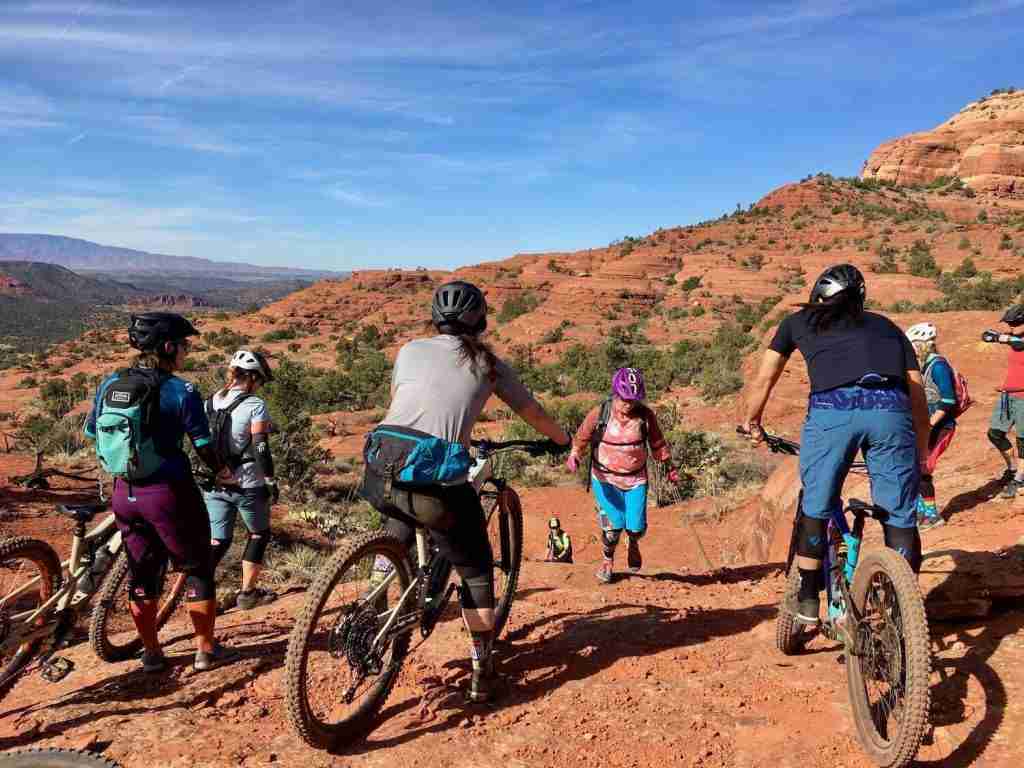
What I Learned in my Level 1 Course
I took my Level 1 PMBIA Course in Bend, Oregon with Lev from Cog Wild and it was phenomenal. There were six students including me and our instructor, Lev, who was the best I could have asked for. He’s an insanely good rider, has a sense of humor, and is a great teacher to boot.
Our group also bonded really well, making that weekend one of the best riding weekends I’ve ever had. We were basically on the trails most of the day listening to Lev ‘coach’ us as students and then practicing our own teaching skills.
So what did I learn? Lots of things, but the three elements below were the biggest concepts I took away from this course. They are also the three main fundamentals of the PMBIA curriculum as a whole.
Shop my favorite mountain bike gear
The Six Skills
PMBIA breaks mountain biking down into six main skills. These skills are the fundamentals of riding a bike and they build on each other like a pyramid starting with position and balance.
They are:
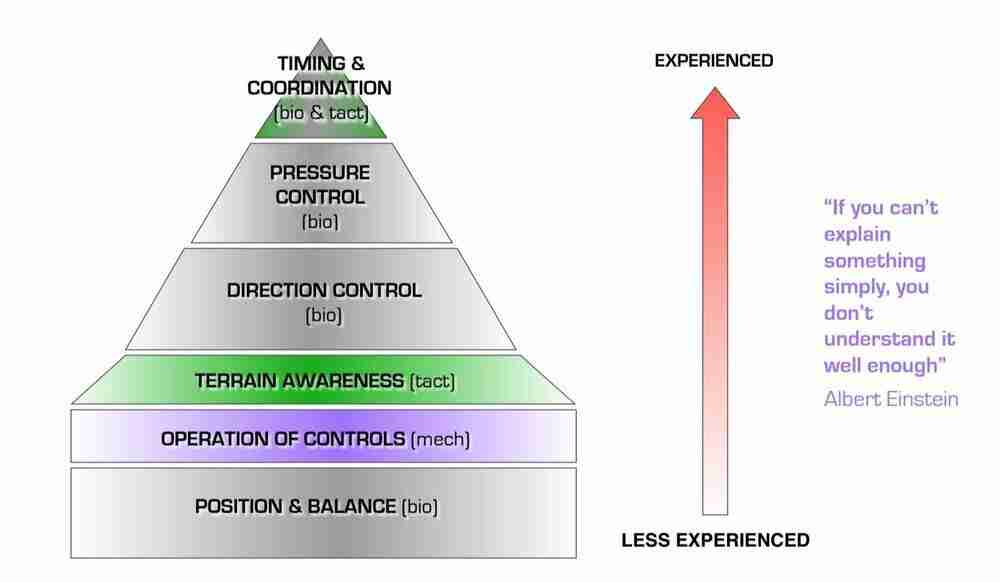
- Position & Balance
- Operations of Control
- Terrain Awareness
- Direction Control
- Pressure Control
- Timing & Coordination
I’m not going to go into depth about these six fundamental skills because that’s what the Level 1 course is for, but I found it extremely helpful to understand how mountain biking is really just a mix of all six of these skills.
It also makes coaching or teaching easier because you can just focus a lesson on one or two of these skill sets.
The Training Wheel
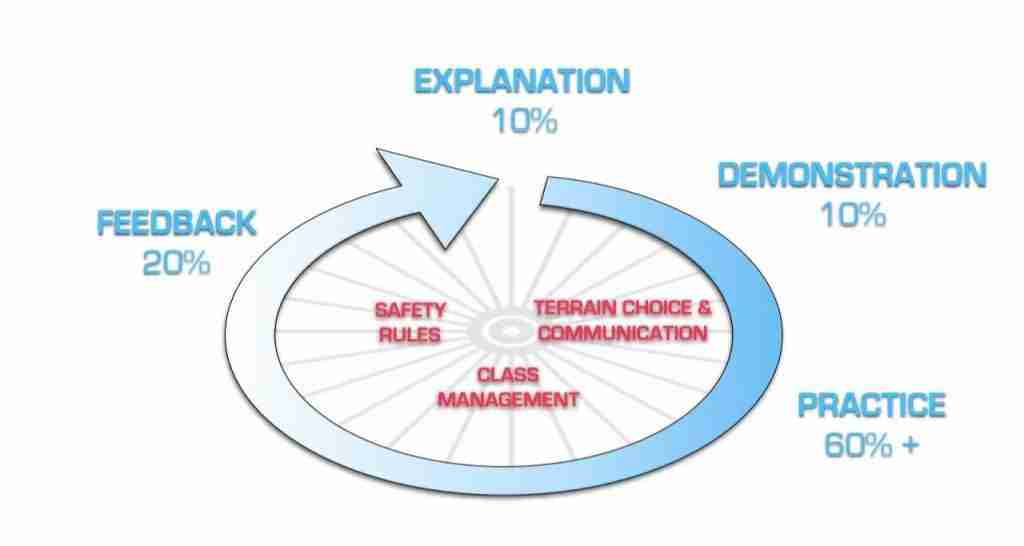
So how do you structure a lesson? That’s where the Training Wheel comes in. The Training Wheel is how the instructor communicates the lesson to students and it’s composed of four parts: Explanation, Demonstration, Practice, and Feedback.
IDEA Progression
To take the Training Wheel lesson format one step further, PMBIA uses the concept of IDEA Progression to really hone and develop the six skills. There may be multiple Training Wheels throughout the IDEA Progression. IDEA stands for:
- Introduce (introduce the skill with no obstacles or challenges).
- Develop (develop the skill with an obstacle like a cone or stick).
- Experiment (experiment with the skill by changing speed or adding more or bigger obstacles)
- Apply (apply the skill by taking it to the trail)

We learned A LOT more throughout our three-day course, but these three elements of the PMBIA curriculum were the biggest takeaways for me in terms of how to structure and teach a lesson.
What I Learned in my Level 1 Course
Good question! With my crazy travel schedule, it’s hard to commit to coaching, but I’m hopeful that I’ll be able to coach regular clinics with the likes of Trek Dirt Series and Ladies AllRide throughout the season.
2023 Update: I’ve been assistant coaching with Ladies AllRide for two years now and love it! Come join me at one of the clinics 🙂
Is a PMBI Certification For you?
Maybe! I loved my experience getting my Level 1 PMBI certification and I’m already looking into what I need to do to prepare for my Level 2 (i.e. learn how to bunny hop…).
If you’re thinking about getting a mountain bike coaching certification or wondering whether it’s for you, here are a few extra tips.
Level 1 Requirements
Obviously to become a mountain bike instructor you need to be pretty proficient on a bike. But for Level 1 you don’t need to be an expert. PMBIA says that you should be comfortable with front and rear wheel lifts, pedaling wheel lifts, and small roll-downs.
You’ll also need to be familiar with basic bike maintenance like fixing flats, splitting and re-join a chain, adjusting a loose headset, replacing brake pads, adjusting saddle positions, setting suspension sag and rebound, etc…
As a coach, PMBIA also expects you to have at least 40 hours of training in outdoor or wilderness first aid, but this isn’t required to participate in the Level 1 Course.
Training locations
PMBIA offers training in over 10 countries including the US, Canada, Australia, New Zealand, the UK, Chile, Argentina, Japan, South Africa, Spain, and more. Courses fill up fast, though, so be sure to check the Upcoming Course Calendar for the closest one to you.
Coaching Opportunities
Mountain biking is becoming an increasingly popular sport, so it’s no wonder that there is a big demand for mountain bike coaches and guides. This is especially true for bike parks, which often have a handful of coaches on staff to lead private tours and clinics.
There’s also a growing number of mountain bike coaching clinics and camps across North America. Some of these include Trek Dirt Series, Ladies AllRide, Grit Clinics, Ninja Mountain Bike Performance, Sedona Mountain Bike Academy, and Hermosa Tours just to name a few. There are lots more out there, though.
Also, most local mountain bike chapters put on skills clinics, but they’re often volunteer-based which is great for getting experience!
Other considerations
You may be ready to say ‘sign me up!’ but it’s important to think about the potential downsides of being a mountain bike coach as well:
- Insurance & liability – if you plan on doing 1:1 coaching or setting up your own coaching business you’ll absolutely need insurance to protect yourself in case something goes wrong. This can be pricey, especially when just starting out. If you plan on working for an established coaching company, make sure their insurance covers you as well.
- First Aid Training – as a mountain bike coach you want (and need!) extensive first aid training. Basic first aid and CPR won’t cut it. Instead, you’ll need something comprehensive like a Wilderness First Responder course or Wilderness First Aid at the minimum.
- Job security – Like ski instructing, mountain bike coaching is likely to be a seasonal job. You could make it a full-time job if you’re willing to change locations based on the seasons. Before you decide to become a coach, think about what your job security goals are.
RELATED POSTS
Looking for more two-wheeled inspiration? Check out these related blog posts:
What questions do you have about becoming a PMBIA mountain bike coach? Are you already one? Where and who do you coach? Let me know in the comments below!

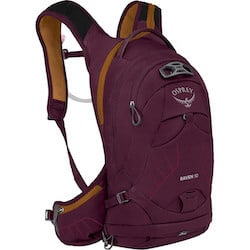

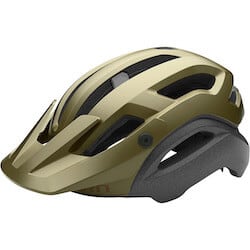






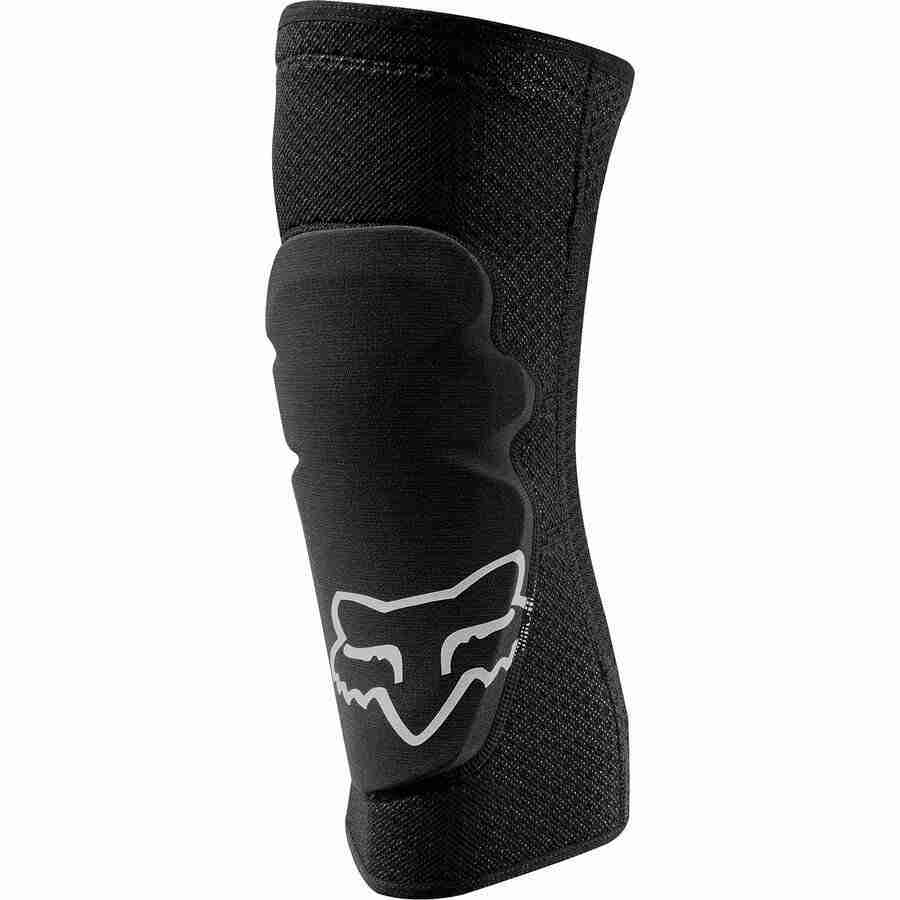



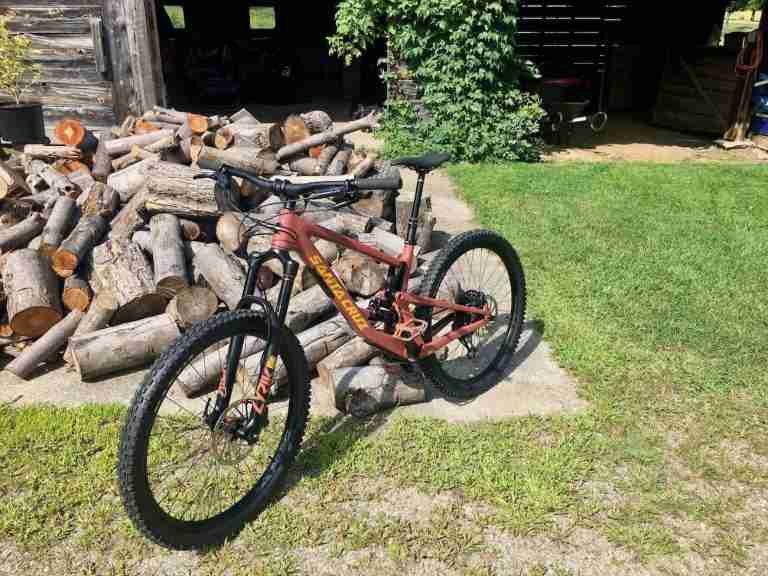
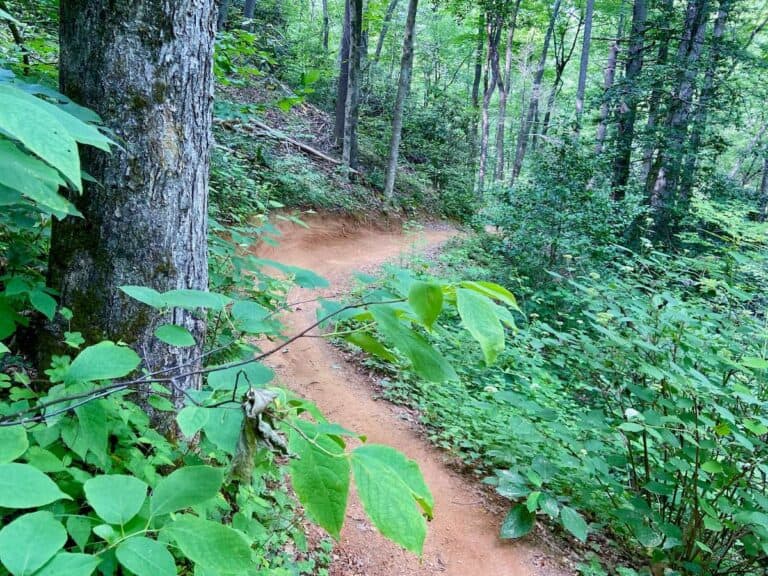
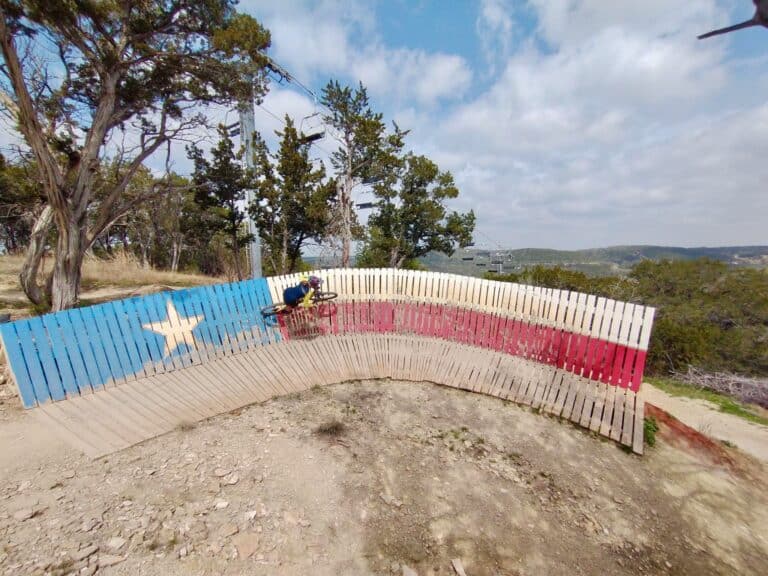
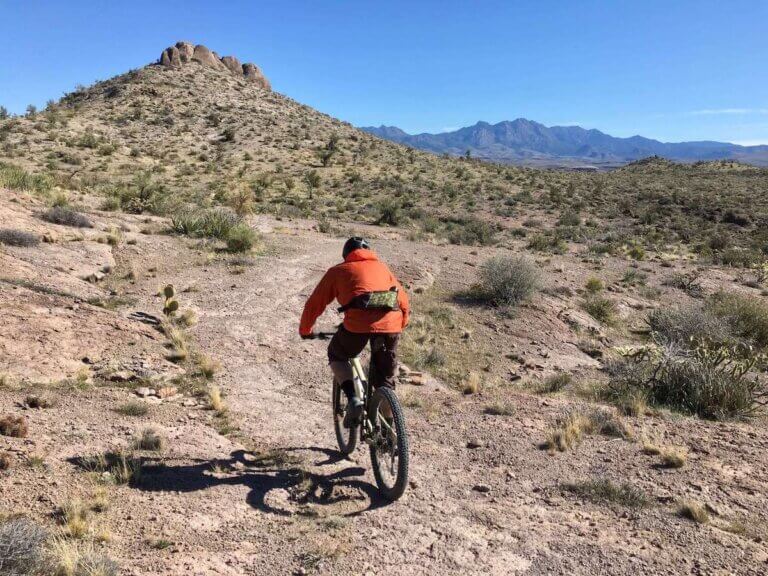
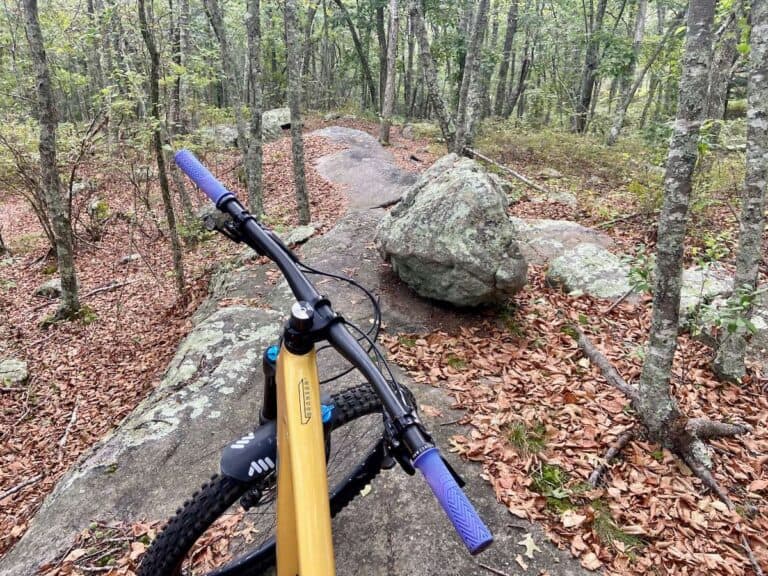
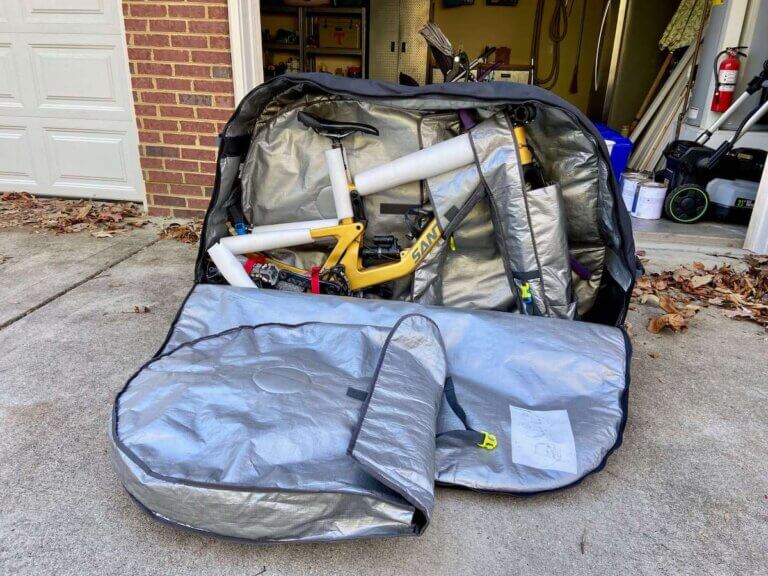
What pro deals did you get access to through PMBIA after you completed level 1. I just earned my cert as well in Bend, and am curious what to expect?